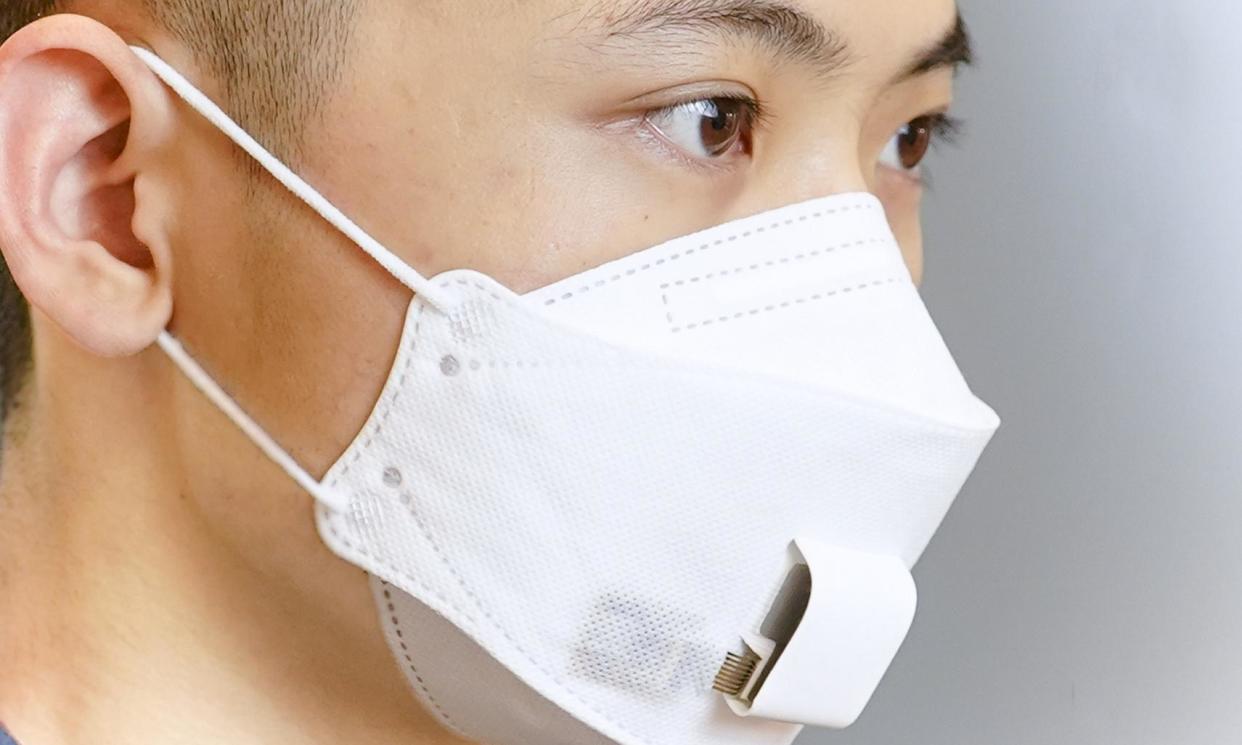Low cost ‘smart mask’ can detect disease from breath, researchers say

Scientists say they have created a “smart mask” that can analyse the wearer’s breath and detect tell-tale signs of disease.
Researchers hope the device – which can beam its data to an app over Bluetooth – will offer an affordable and convenient way to capture and immediately analyse breath biomarkers related to respiratory and metabolic processes.
They say it has the potential to improve efforts to diagnose conditions such as lung disease early and to monitor conditions and support tailored treatment plans.
“Our technology can serve as a general breath analysis platform. We can choose different sensors for a specific condition or a fusion of sensors for a variety of conditions,” said Prof Wei Gao, senior author of the research, from the California Institute of Technology.
“For example, the mask we evaluated in this work can simultaneously monitor kidney conditions as well as airway inflammation in COPD [chronic obstructive pulmonary disease] and asthma.”
In the journal Science, the team report that current methods of analysing patients’ exhaled breath face challenges around condensing the vapour – often requiring ice buckets or refrigeration – while analyses of such samples are typically carried out in a laboratory.
By contrast, their mask is fitted with a device, called EBCare, that enables monitoring of biomarkers in a patient’s breath.
The researchers said they used a double-pronged approach to condense breath: not only is the EBCare device made from a material that can easily lose heat, but it contains a hydrogel that is cooled by the natural evaporation of water.
The condensed breath is directed towards a built-in sensor that can detect the presence and levels of various components in breath, including its alcohol content, pH and levels of ammonium and nitrite. The condensed breath is then directed to the hydrogel, providing a continuous water source for the evaporation process.
The researchers reported several tests of the device among healthy volunteers as well as those with conditions such as asthma and COPD.
Among their results they found that the mask could track changes in breath alcohol concentration, and hence the dynamics of alcohol metabolism, as well as monitor changes in levels of ammonium associated with eating protein.
The latter, they said, offered a noninvasive alternative to blood tests for renal disease management and personalised protein metabolism monitoring. They also found the concentration of nitrite in the breath was higher in groups with airway inflammation, such as those with asthma.
“This [mask] can be worn during a person’s daily activities – during the day and at night. It offers continuous, real-time, and at-home personalised health monitoring without the need for clinical visits,” said Gao.
The device is also low cost he said: “The reusable electronics part will cost tens of dollars while the disposal part will cost around $1 per device.”
Prof Ian Hall, of the University of Nottingham, who was not involved with the work, said the device was a nice piece of engineering, but that further work was needed to show it can be used to diagnose and monitor conditions.
Hall added that the device could prove useful in research. “Often in evaluating a new drug, you want to get indications of whether or not your drug is working at an early stage, and many of the endpoints we use take a long time to develop,” he said.


